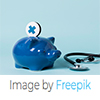Advocacy
 WHAT is advocacy?
WHAT is advocacy?
Advocacy is the act of pleading or arguing in favor of something, such as a cause, idea, or policy.
WHY should I participate?
Because it is a rare disease, ichthyosis is not well recognized, understood or researched. Increased education of our communities and elected officials will help lead to better quality of life for ichthyosis patients, better treatments and possibly even a cure.
Ichthyosis Awareness and Advocacy at AAD Annual Meeting
 FIRST enjoyed a unique presence at the annual meeting of the American Academy of Dermatology in March. Members of FIRST’s Medical and Scientific Advisory Board hosted the conference’s first-ever ichthyosis general session, while FIRST staff and member Hunter Steinitz promoted FIRST’s mission to physician attendees, pharmaceutical companies and potential partners.
FIRST enjoyed a unique presence at the annual meeting of the American Academy of Dermatology in March. Members of FIRST’s Medical and Scientific Advisory Board hosted the conference’s first-ever ichthyosis general session, while FIRST staff and member Hunter Steinitz promoted FIRST’s mission to physician attendees, pharmaceutical companies and potential partners.
General Session Sparks Interest, Awareness
Dr. Sarah Asch, MSAB President, and Dr. Cheryl Bayart, MSAB member, hosted a general session open to the conference’s 18,000+ dermatological professionals. This year’s general session marked an exciting expansion, as FIRST’s MSAB often gathers at AAD for a closed-door session on ichthyosis cases. The goal was to increase awareness of ichthyoses and hopefully get one or two dermatologists started down the path to becoming the next generation of dermatologists with a deep abiding interest in ichthyosis.
The session, called Think Like an Ichthyosis Expert, featured:
- Sample cases presented by MSAB members Dr. Evelyn Lilly, Dr. Chris Bunick, and Dr. Jason Meyer. Audience members participated using a live survey tool, submitting their input on diagnoses and treatments.
- The patient experience, shared by FIRST Denise Gass, who has ARCI-CIE ichthyosis. Gass drew on her own experiences, with anecdotes from other FIRST members. This was an engaging and unique opportunity as patients rarely appear and speak at the AAD meeting.
- Audience discussion of cases presented by Dr. Jennifer Hand and Dr. Keith Choate, MSAB members.
This format was a departure from scientific meeting sessions in the past, which are typically straight lecture. Each case received comments from various experts. The discussion was supportive, informed, and friendly.
The audience consisted of experienced doctors, pediatric dermatologists, general dermatologists, and resident physicians and medical students.
“We would like to get more doctors open and less intimidated by caring for patients who have a form of ichthyosis,” said Asch. “The overall message was that if general dermatologists are curious, willing to reach out to FIRST for help, and willing listen to their patients and families …they can be very successful at caring for a person with a rare condition.”

WHAT can I do?
- Your elected representatives are most likely not going to hear about ihttps://rarediseases.org/advocate/policy-priorities/contact-representatives/chthyosis unless you educate them.
- Introduce yourself to your representative and concisely tell them how ichthyosis has affected you. Write a letter, asking for a meeting in the local district office or attend a town hall meeting in your area.
- Call the local district offices of your elected representatives or check out their websites to learn more about their town hall meeting schedule.
- When you meet with the representative, leave behind a FIRST brochure for their reference.
- Don't forget to personalize your story.
- For a sample letter to members of the US congress, or your state or local elected officials, click here.
- Many local and state governments issue proclamations on topics important to their community. The proclamation is simply a formal announcement that raises awareness of the topic in your area and hopefully, beyond.
- Raising awareness of ichthyosis will help lead to scientific advancements and better treatments.
- Consider writing to a local weekly paper or a neighborhood newsletter that may be more likely to publish human interest stories.
- Raising awareness of ichthyosis to a group of people will help will help to make it easier for those who are affected with ichthyosis.
National Organization for Rare Diseases Advocacy tool kit https://rarediseases.org/advocate/policy-priorities/contact-representatives/



